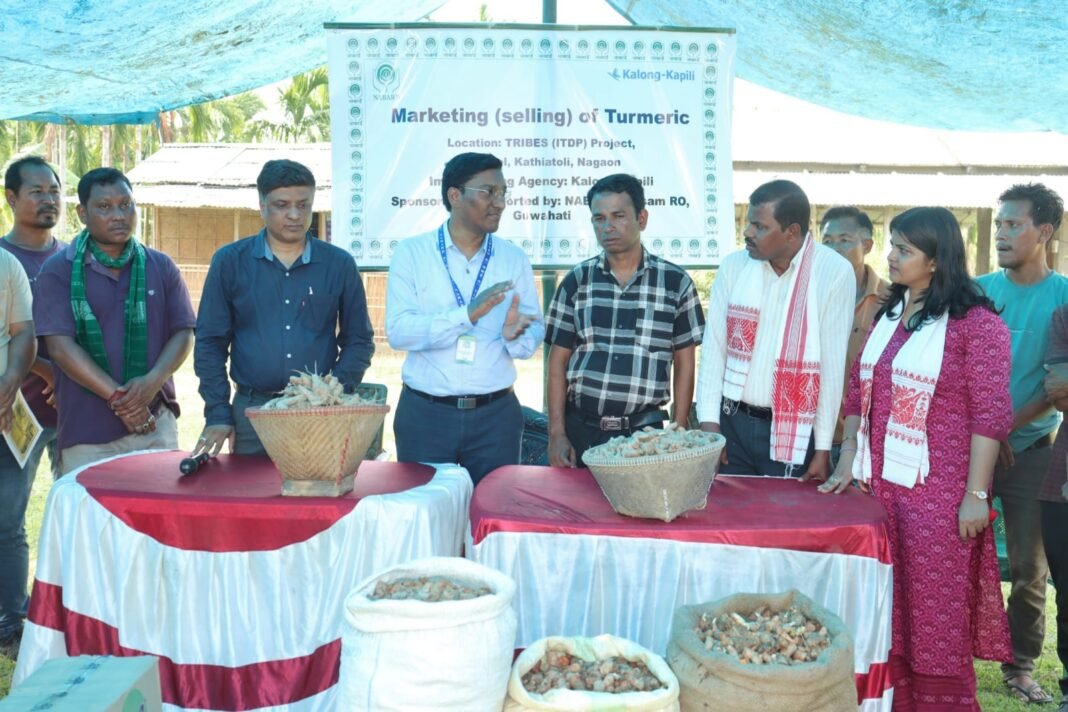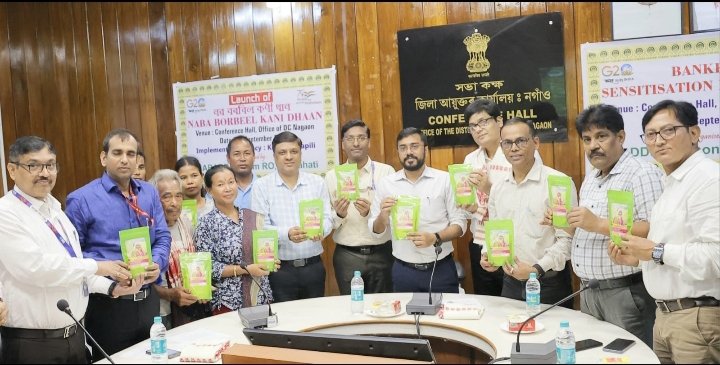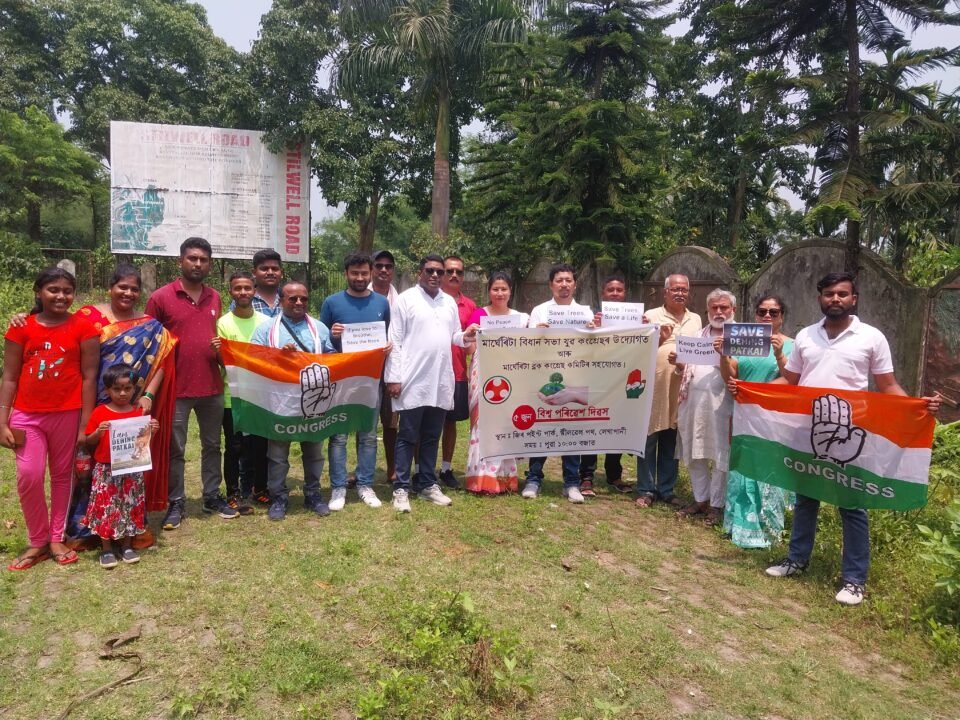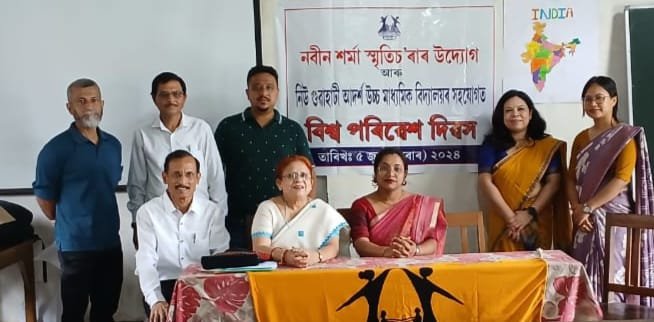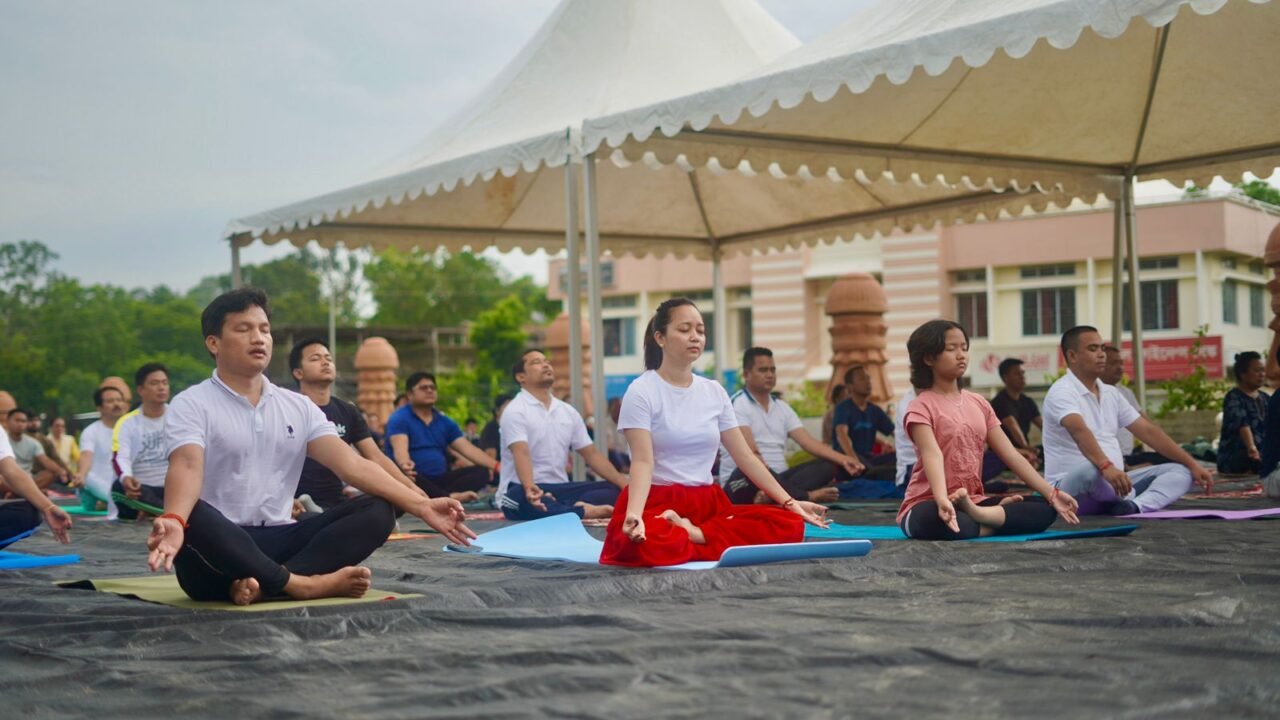HT Bureau
NAGAON, May 25: In a significant initiative aimed at promoting natural resource management and sustainable development in rural areas, the National Bank for Agriculture and Rural Development (NABARD) organised an awareness-cum-orientation programme on the JIVA natural farming concept at Borbeel tribal cluster in Kathiatoli Block, Nagaon district.
The event, held on Wednesday, brought together selected expert farmers from various villages of the Borbeel cluster, along with representatives from the implementing agency Kalong Kapili and the resource support organisation WASSAN, based in Hyderabad.
The programme was designed to familiarise local stakeholders with the objectives and operational aspects of the first-of-its-kind JIVA project sanctioned by NABARD’s Assam Regional Office.
As stated in an official press release, NABARD has been actively supporting the implementation of a range of rural development projects across the country, including the Integrated Watershed Development Programme with Climate Proofing Interventions (IWDCPIs), Integrated Tribal Development Programmes (ITDPs), Umbrella Programme on Natural Resource Management (UPNRM), and Climate Change Projects.
In keeping with its developmental mandate, NABARD has now introduced the JIVA initiative in Assam, marking a new phase in sustainable agricultural interventions.
Delivering the keynote address, District Development Manager (DDM) of NABARD, Rajendar Perna, stated that NABARD has always strived to support rural development through innovative and sustainable agricultural initiatives.
He noted that the Borbeel tribal cluster was chosen for the JIVA initiative owing to the remarkable commitment shown by its farmers during the implementation of the ITDP-TRIBES and Model Millets Project.
Explaining the concept further, Perna said, “‘JIVA,’ a Sanskrit word meaning ‘life force,’ symbolises the project’s core philosophy of revitalising farming systems through agro-ecological practices.”
He informed the gathering that the JIVA programme aims to pioneer and scale up agro-ecology as a transformational approach, capitalising on the existing social and natural capital of the region.
The project will integrate diverse components such as Aquaculture, Livestock, Nutrition Gardens, and Horticulture, while establishing a Bio-Input Resource Centre and Indigenous Seed Banks within the Borbeel TRIBES cluster.
Speaking at the programme, Jyotish Talukdar, Secretary of Kalong Kapili, suggested that 40 identified Champion Farmers would adopt innovative cropping combinations, including cereals, pulses, oilseeds, and vegetables, under the integrated farming model.
He highlighted the need for experimentation and diversification in crop patterns to ensure better productivity and sustainability.
DK Patra, the representative from WASSAN, elaborated on the technical aspects of the project, stating that there would be a transition from mono-cropping to diversified, multi-crop systems.
He emphasised that longer ground coverage by diversified crops would significantly enhance soil organic matter, improving long-term fertility and resilience.
The orientation programme also featured interactive sessions wherein participants shared their experiences, expectations, and feedback.
Local farmers expressed interest in adopting the natural farming methods and highlighted the challenges they face in accessing markets and improving returns on their produce.
As part of the programme, a mini-market linkage initiative was organised, showcasing the sale of locally grown raw turmeric by beneficiary farmer Ranjit Rabha to a nearby trader.
Farmers reported that nearly 95 quintals of raw turmeric had been sold this season.
They requested continued support from NABARD and Kalong Kapili for branding, processing, and marketing their produce more effectively.
The event concluded with expressions of optimism from the participating farmers and stakeholders, who appreciated NABARD’s efforts to empower rural communities through sustainable and integrated development projects like JIVA.


